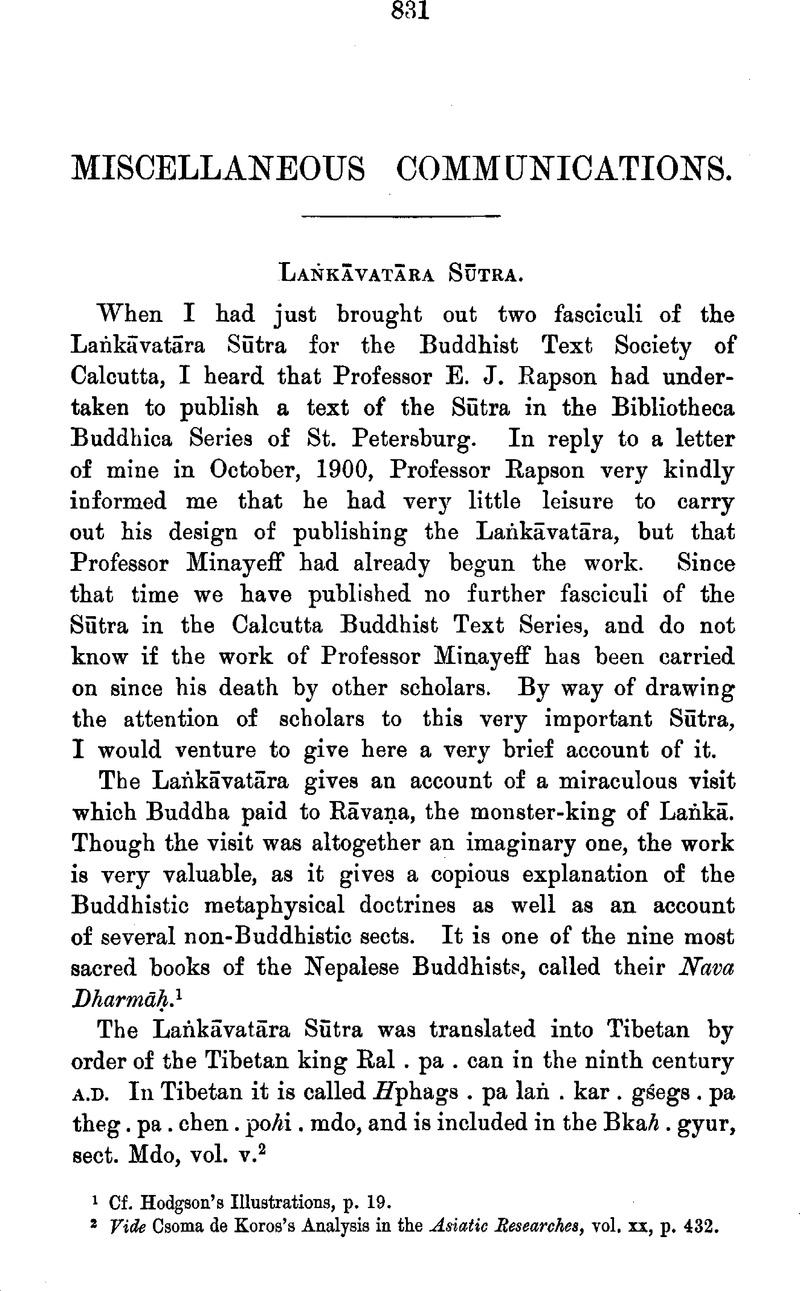No CrossRef data available.
Published online by Cambridge University Press: 15 March 2011

page 831 note 1 Cf. Hodgson's Illustrations, p. 19.
page 831 note 2 Vide de Koros's, Csoma Analysis in the Asiatic Researches, vol. xx, p. 432.Google Scholar
page 832 note 1 Vide Bunyiu Nanjio, Nos. 175, 176, 177.
page 832 note 2 Beal's Buddhistic Records, p. 251.
page 832 note 3 From the metre it appears that this yasmāt is here redundant, or yasmāt tāsmād is an explanation of ato.
page 833 note 1 Mādhavācāryya, in his Sarvadarśanasaṅgraha, reads darśitāḥ for deśitāḥ. But the Tibetan synonyma bstan and bśad show that deśtāḥ was the correct reading. Anabhilāpyāḥ and nirabhilāpyāḥ (Tib. brjod du. med) stand for Mādhavācāryya's nirabhilapyāḥ.
page 834 note 1 Vijito is a wrong reading for virajo. It is evident from the Tib. synonym rdul-med.
page 834 note 2 [It has been pointed out that the translation of this passage, and also perhaps the discussion of authorship in the following paragraph, and one or two other points in the article, are open to objection, which no doubt would have been met had there been time to await the author's revised proofs.—Ed.]
page 834 note 3 The Sanskrit manuscript reads Yajñavarṇa, which is a mistake for Yājña-valkya (Tib. mchod. sbyin. bal. ka).
page 835 note 1 The Sanskrit manuscript reads Vāma, which is a mistake, as is evident from the Tibetan synonym d gah. ba (Nanda).